Reanalysis of the political diversity paper
This paper (pic related above) is floating around X. It claims that liberals have less diversity in their views than conservatives. At first I was skeptical because the analysis is not standard. The authors are sociology types using some kind of wonky network analysis instead of normal statistics. Luckily, the data is open source, so I downloaded it and computed the 95% confidence intervals for the variances of the items by party.
For all of the items except for abortion, Republicans had significantly higher variance than Democrats. At least in this sample, for these items, it’s probably true that self-identified Republicans vary more on political questions than self-identified Democrats.
I also computed the means. All of the items are predictive of party alignment, but some are more than others. We can see that the Republicans in this sample aren’t actually very conservative — on average, they support gay marriage and are neutral when it comes to increasing affirmative action for blacks. They also support more environmental regulations.
Is it just the items they used?
If you eye my general leftism scale, you do see that Republicans appear to be slightly more variant than Democrats, but maybe not as much more variant as they found with their 8 items.
The items themselves didn’t intercorrelate that well, but the first principal component was a lot better. I checked it, and it shows the same variance gap as the items.
I would say, tentatively, that Democrats do actually vary less on their responses than Republicans. I’m not sure why this would be, and there’s not a lot of literature on this currently. In general, if Democrats engage in more information exchange than Republicans, this should tend to reduce variance within the party relative to Republicans, given that the average piece of information pulls people towards the center of the party. It could also just be an artifact of only using 8 items.
I have another dataset sitting around, and it looks like rightists are more variant.
Same with LGBT:
But on race they are not that different:
However on regulations rightists are still more variant:
The effect seems to be pretty robust. If anyone has any ideas on how to test the root cause of this, leave a comment and I’ll try to do it.


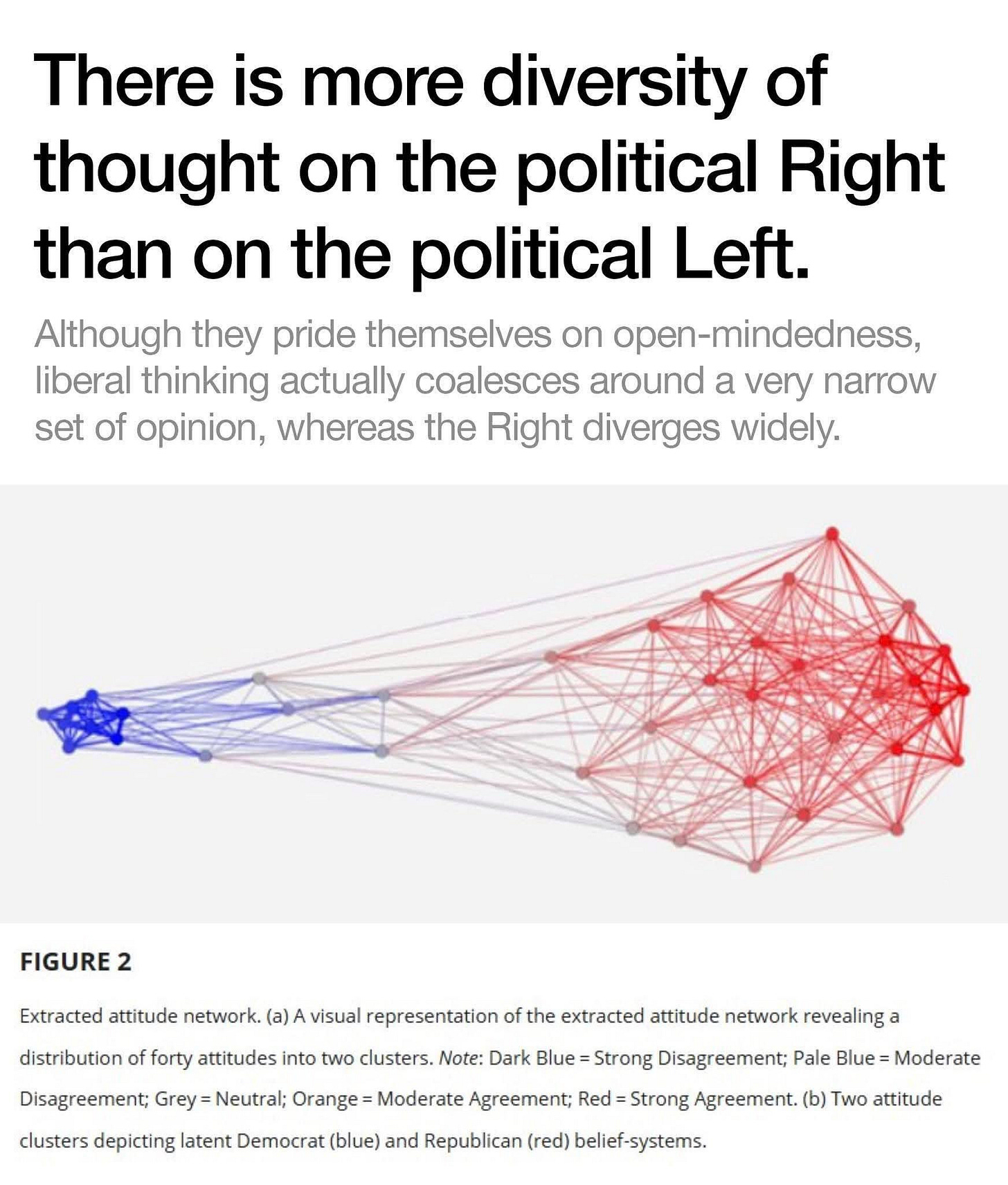
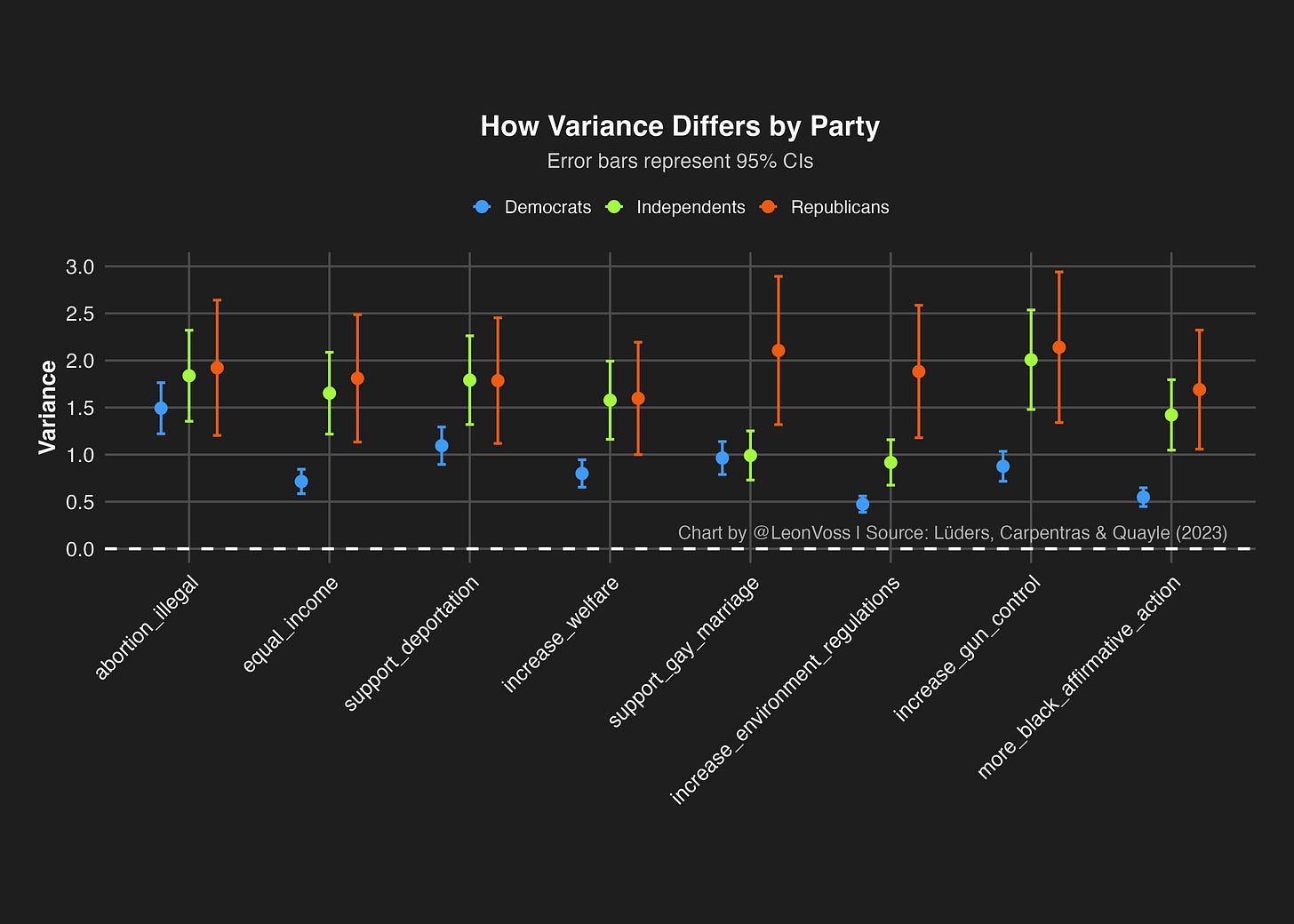
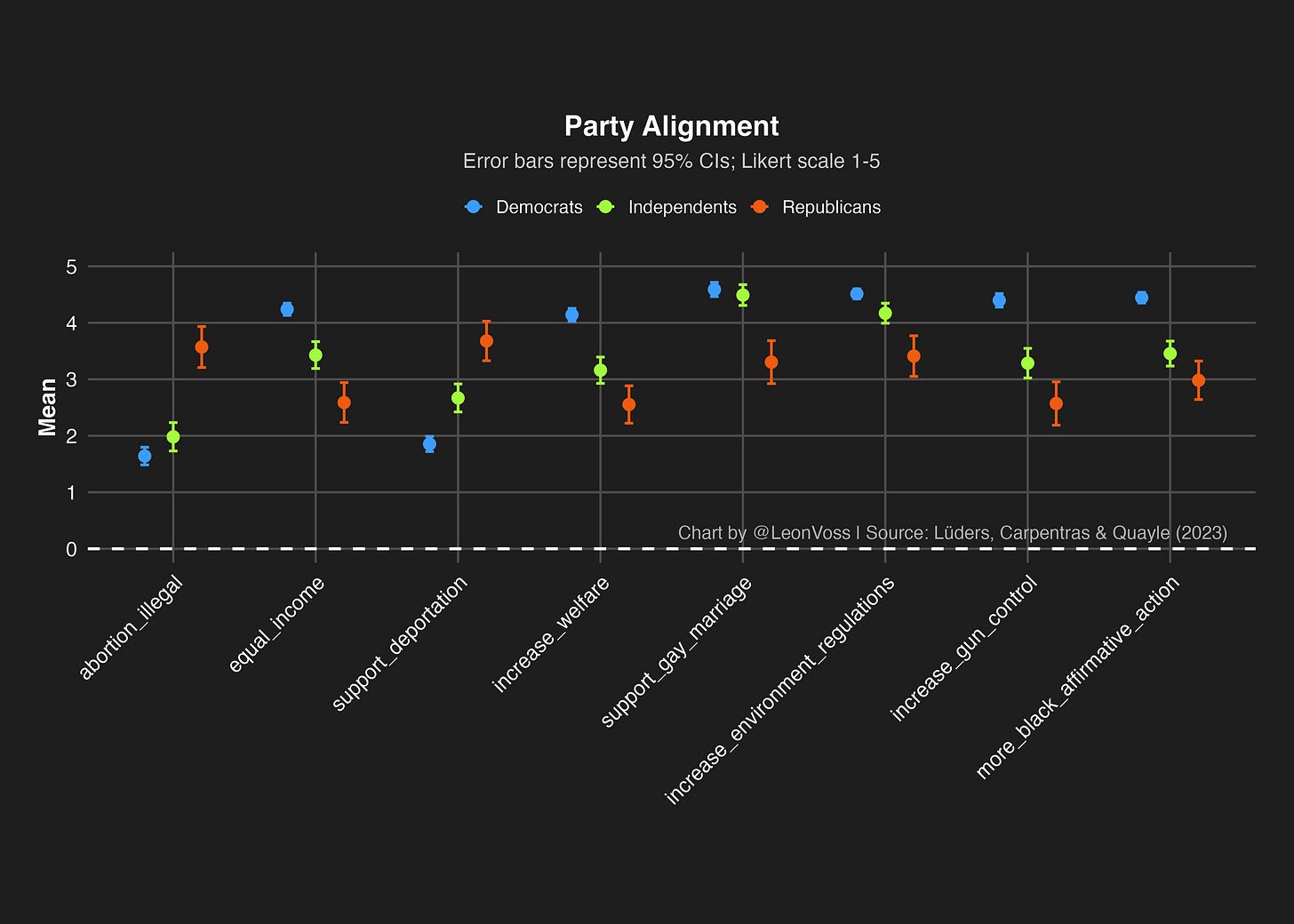
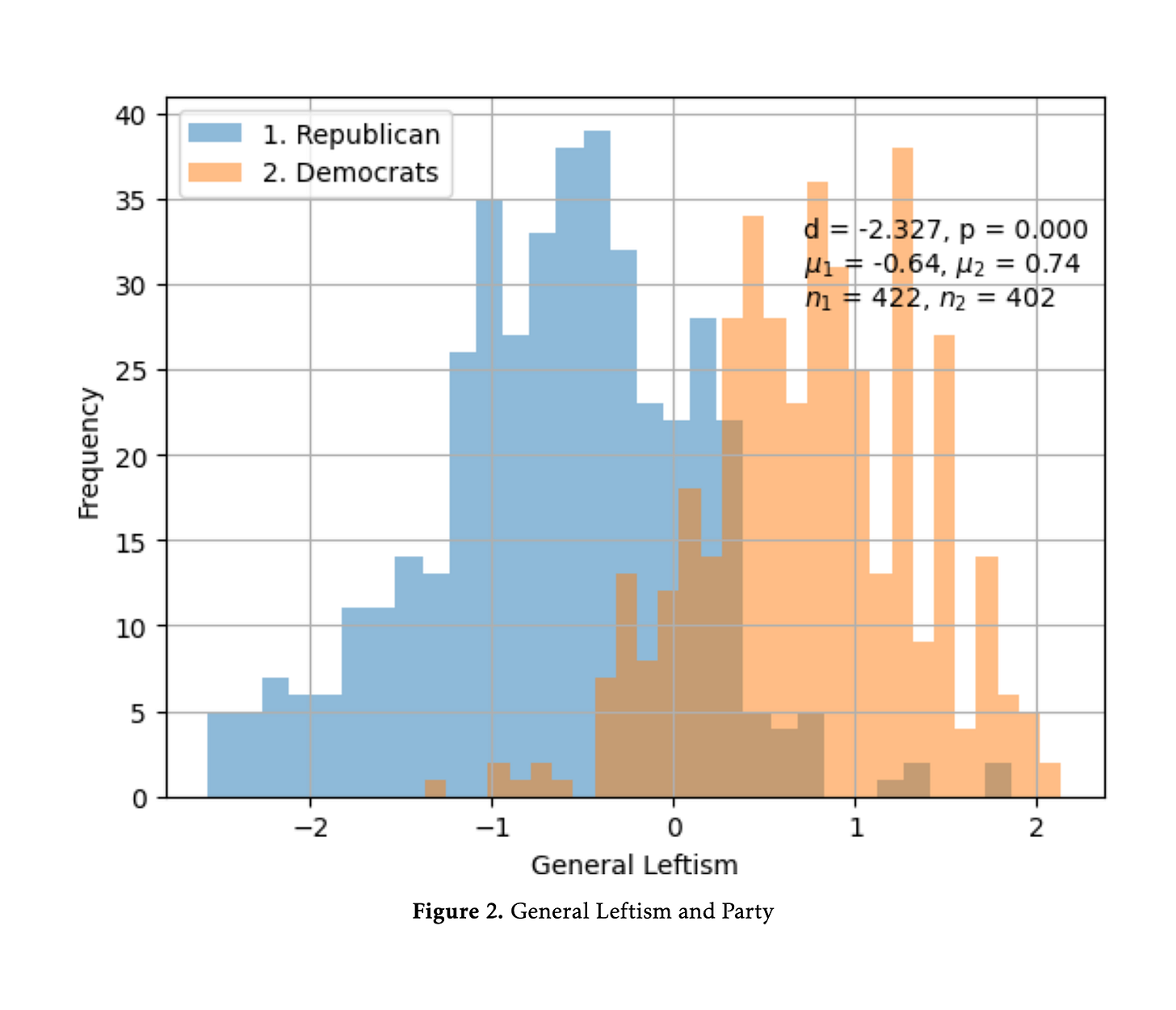
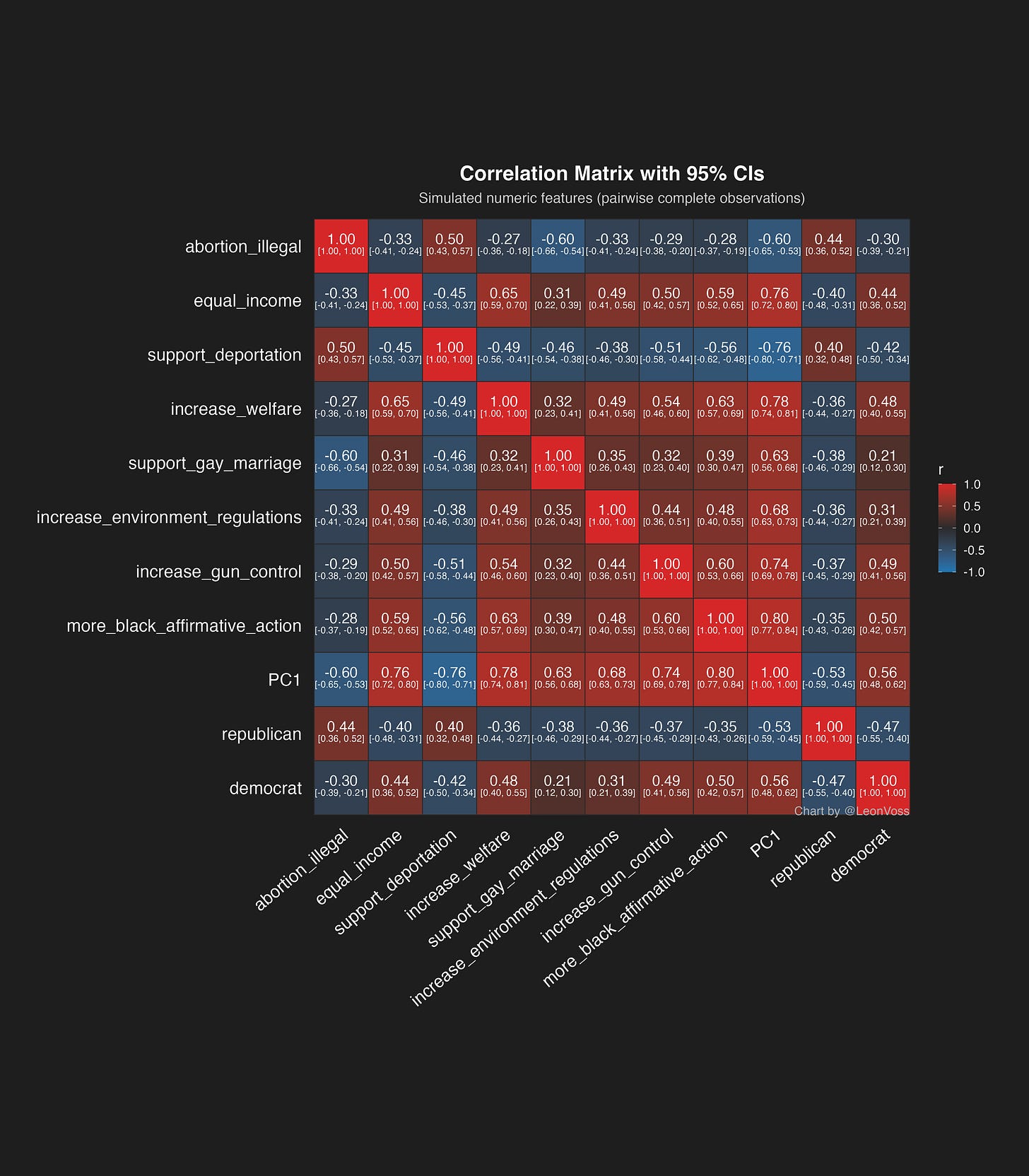
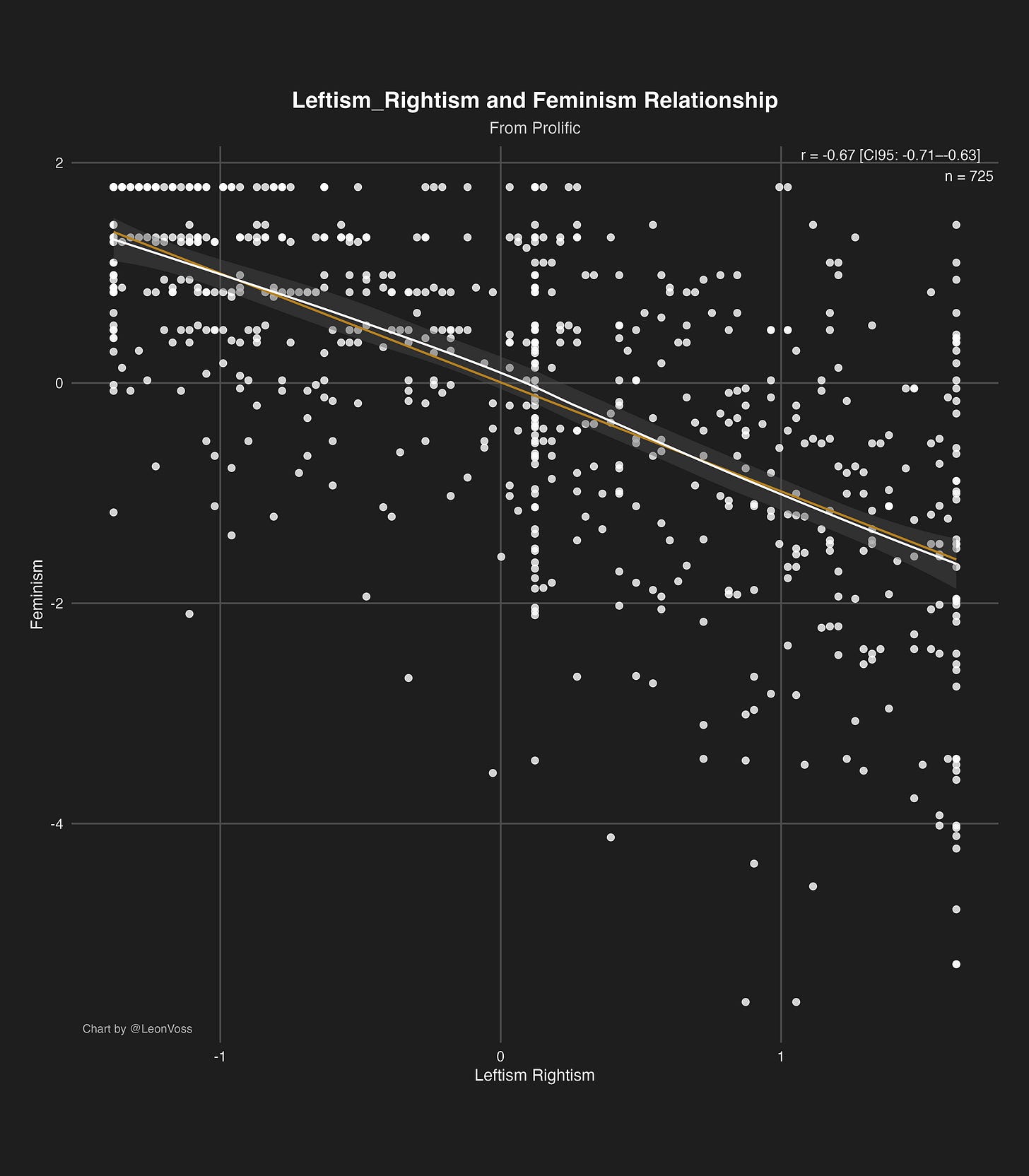
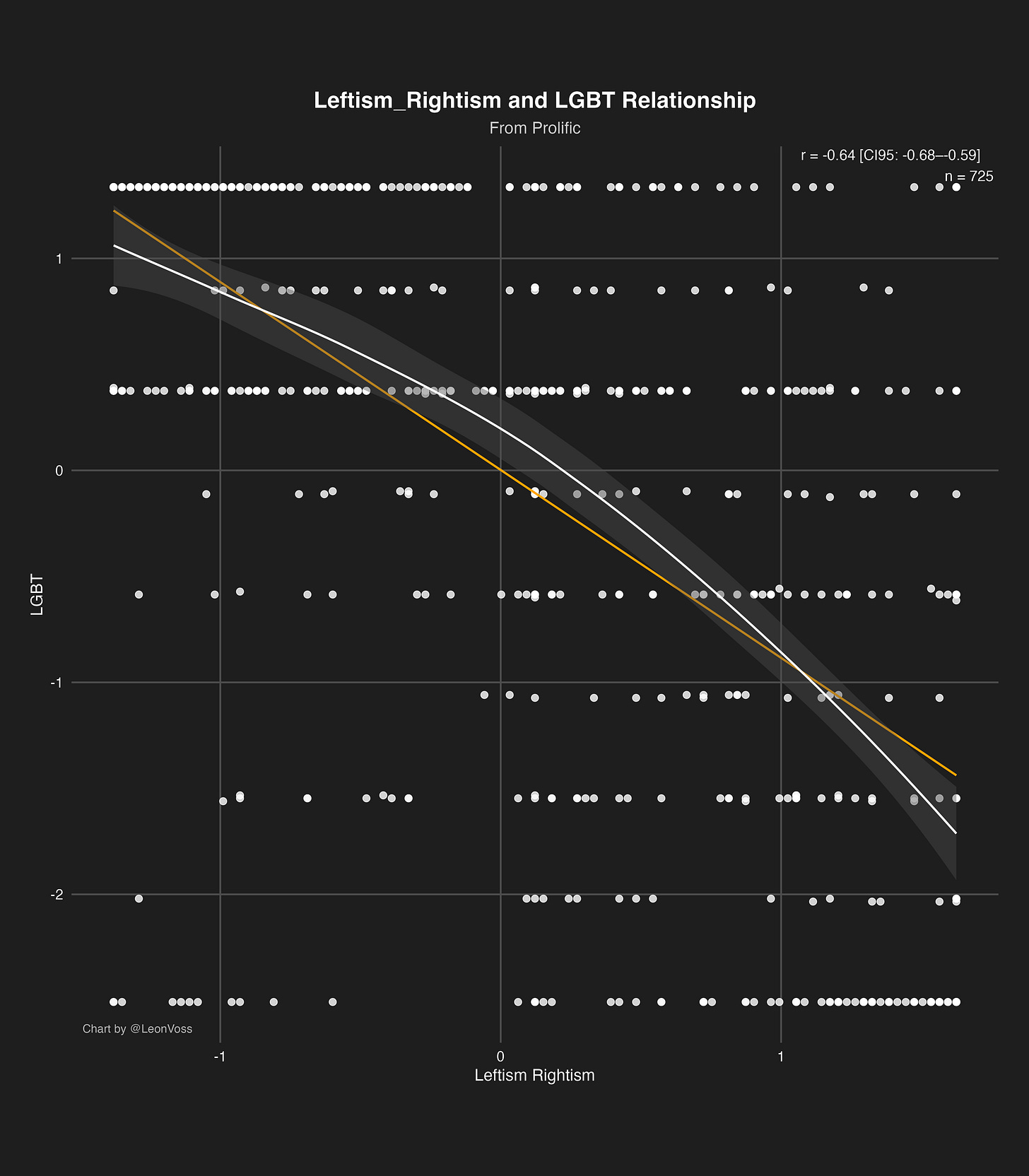
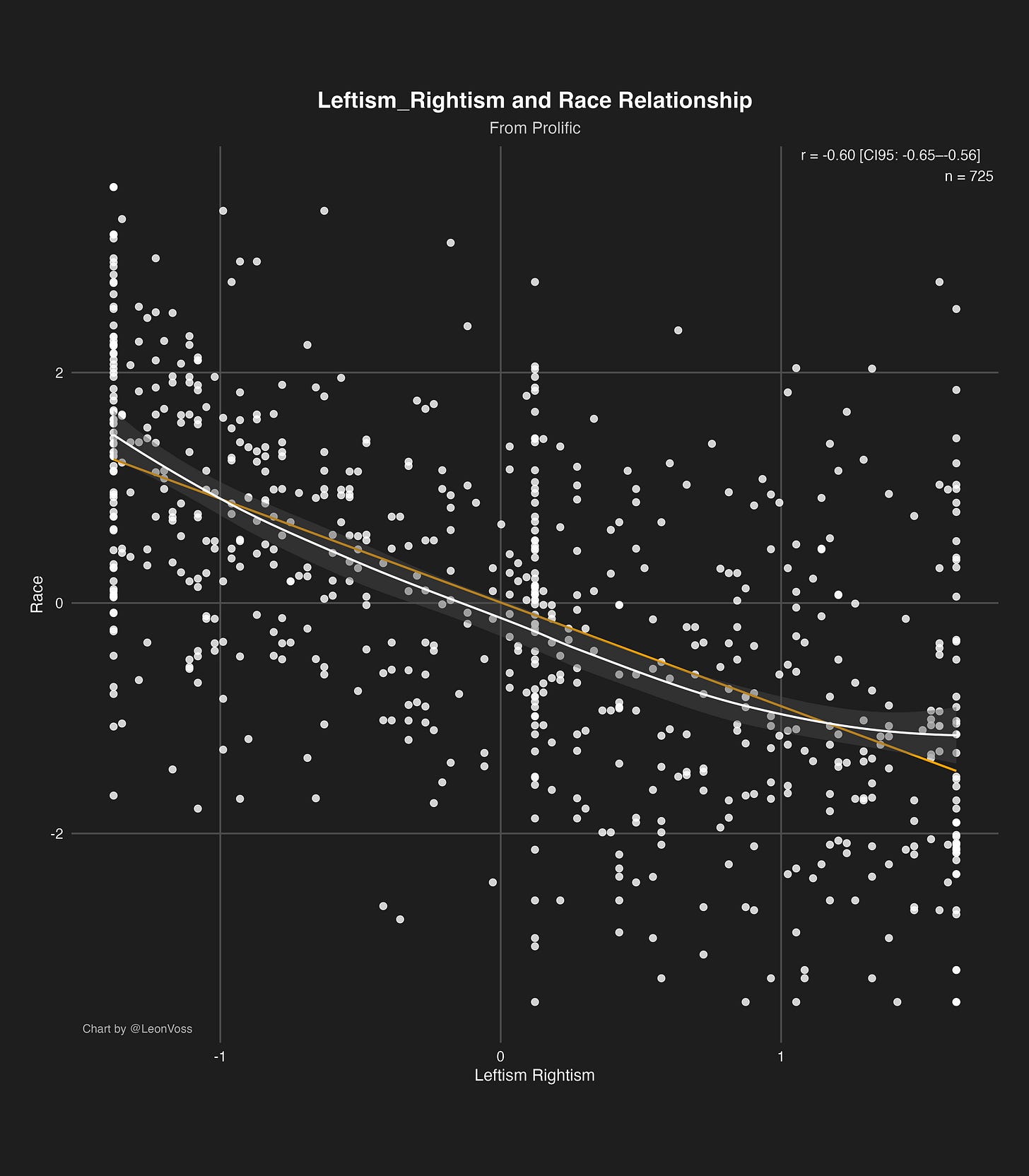
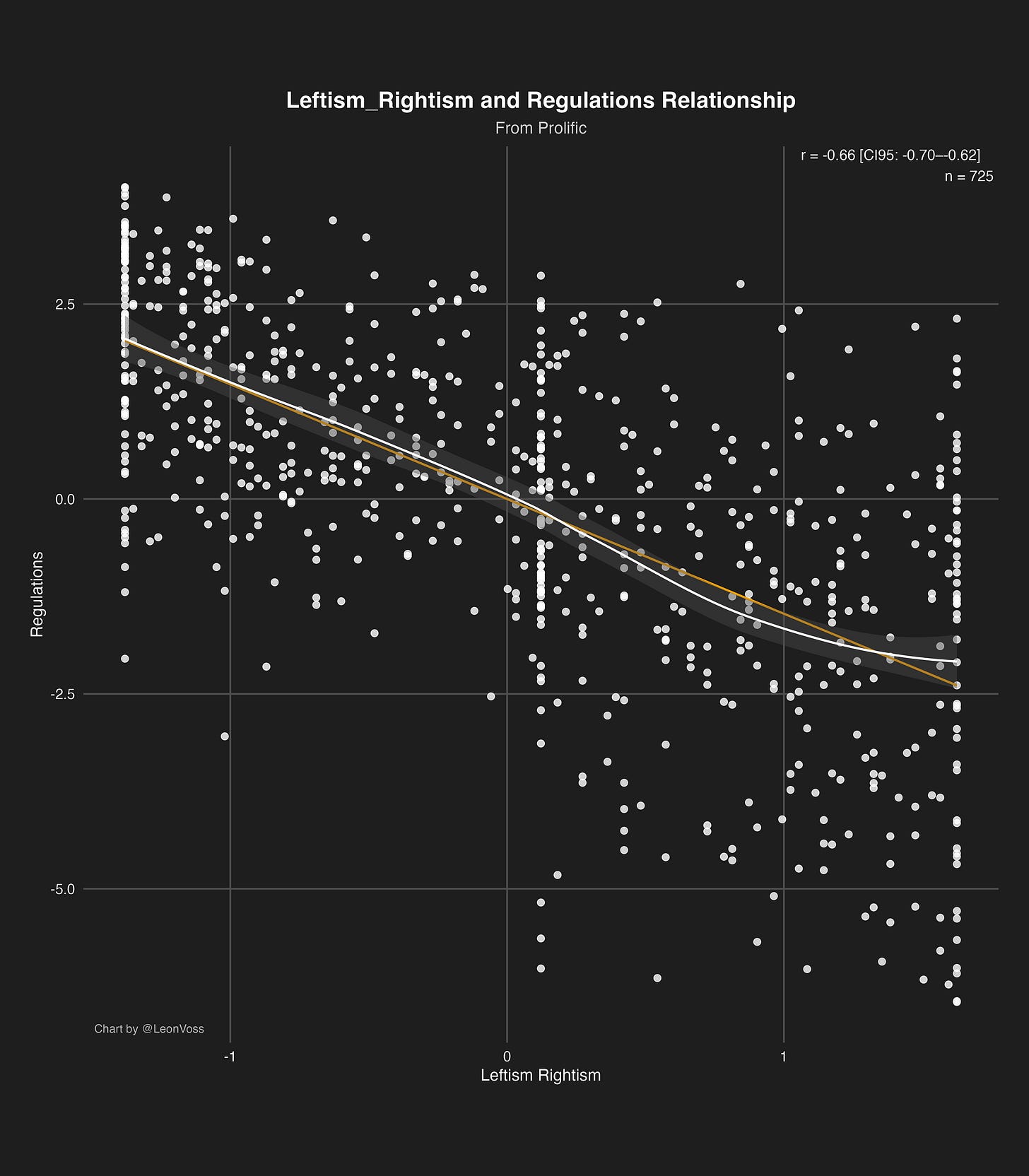
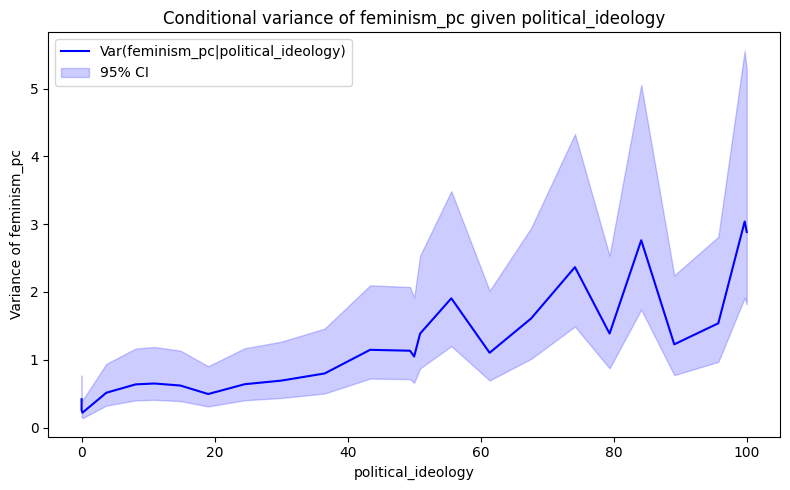
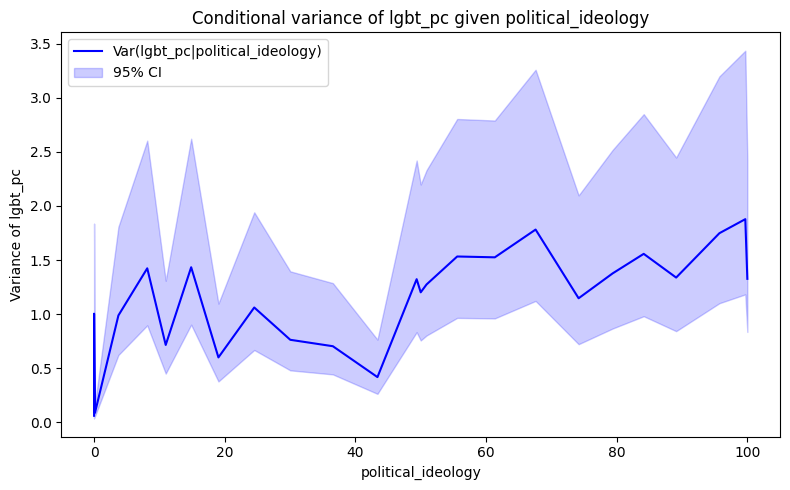
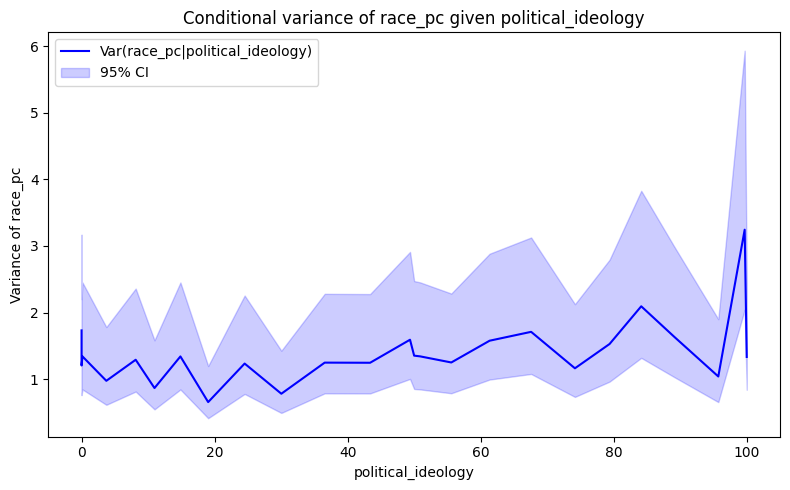
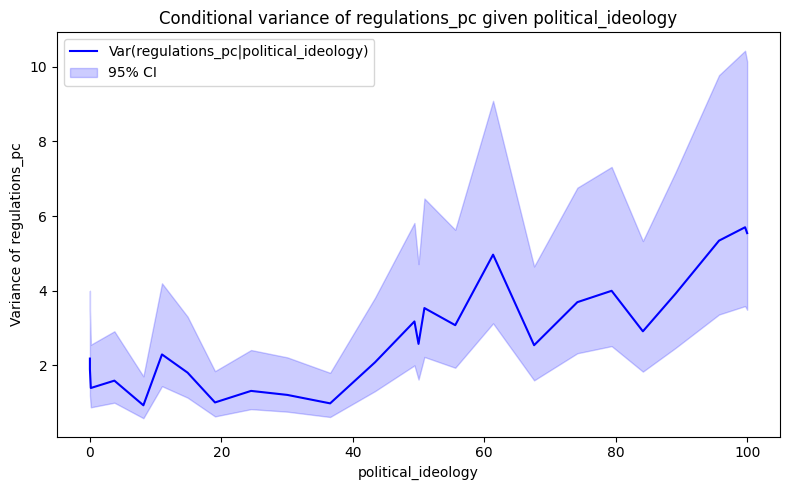
It's probably like comparing Catholics vs. Protestants, with the Western university/media ecosystem (the "cathedral") in the place of the Catholic Church's hierarchy. Of course Catholics will have less variance on theology because they adhere to the centralized organization's precepts.
Possible causes
1 The internet and podcast ecosystem larger for the right along with having a greater influence on actual policy through the Trump Admin in relation the left uses more traditional media democrat party politics which have higher barriers to entry selecting for more 'reasonable' and heterodox thinkers
2 The Christian right has very different social beliefs from the libertine 'business right' and techbro podcast right you have very few secular rightest who are anti gay marriage abortion etc
3 Trump realigned the party significantly split between the pro Trump MAGA and the large anti Trump reluctant republican voter
4 Leftism is predicated on care harm morality the right comprises a a combination of all other foundations
5 More residual consistent voter blocks for the democrats union workers, black community, graduates who vote democrat no matter what